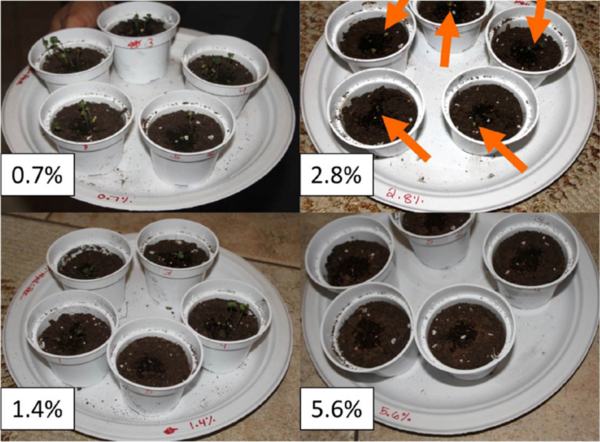The Effect of Antioxidant Vitamins on Mustard Plants in a Hydrogen Peroxide-Induced Injury Model
(1) The Ellis School, Pittsburgh, Pennsylvania
https://doi.org/10.59720/16-022
Vitamins A, C and E are known as antioxidants, but their role in various biological systems is not well understood. We assessed the antioxidant properties of these vitamins in a plant model. A model of free radical–induced growth inhibition was created and then used to test the effect of the vitamins. The model was first validated by demonstrating that hydrogen peroxide (H2O2) can slow the growth of mustard seeds. A concentration of H2O2 that caused definite but non-lethal inhibition of growth was selected using data from the model validation study. Following this, various groups of mustard seeds were treated with H2O2 and vitamins in varying concentrations. The plant number and mean height for each vitamin group were compared to controls treated only with distilled water (DW) or H2O2. The group treated with only DW had significantly (p<0.001) better growth than other groups. H2O2 caused a significant reduction in plant growth compared to DW (p<0.001). Vitamin A caused a dose-dependent partial reversal of the effect of H2O2. Vitamin C caused dose-dependent worsening. Vitamin E had no significant effect. A separate study demonstrated that the vitamins alone did not significantly affect plant growth in the absence of H2O2-mediated damage. In conclusion, this study demonstrated that, among three vitamins that are considered to have antioxidant properties, only vitamin A exhibited such an effect in a plant model of oxidative damage. Vitamin C worsened the effect of H2O2, whereas the effect of vitamin E treatment was neutral.
This article has been tagged with: